Last Updated on July 30, 2021

THE BLACK SHEEP is an ongoing column featuring different takes on films that either the writer HATED, but that the majority of film fans LOVED, or that the writer LOVED, but that most others LOATH. We’re hoping this column will promote constructive and geek fueled discussion. Dig in!
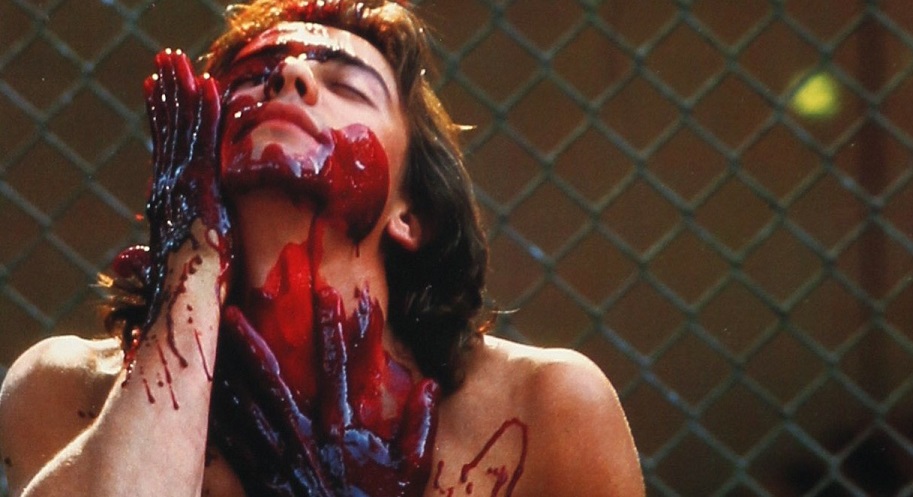
RAMPAGE (1987)
DIRECTED BY WILLIAM FRIEDKIN
For all the fame and household name recognition THE FRENCH CONNECTION and THE EXORCIST afforded the great William Friedkin – who has a very intriguing new docudrama due in just a few weeks in THE DEVIL AND FATHER AMORTH mind you – the man still has a number of unheralded, even underrated films in his catalogue. CRUISING, THE GUARDIAN, BLUE CHIPS (I love Nick Nolte in that one), KILLER JOE, are just a few examples. But there’s one feature in Friedkin’s fecund filmography that, in large part due to a raw distribution deal, ranks high among those most iniquitously dismissed when it was eventually released some five years after it was completed.
Yes friends, we’re talking about the 1987 film RAMPAGE, which was not released in the U.S. until 1992. If that kind of disrespect doesn’t denote F*cking Black Sheep status, I don’t know what does. Maybe the fact the film is still only available on rare VHS copies. Furthermore, that the film itself is a highly engrossing legal-drama based on the horrific real life story of serial killer Richard Trenton Chase, aka The Vampire Killer, who exacted a string of grisly murders in January of 1978, only makes the massive critical and commercial oversight all the more galling. I mean, is RAMPAGE upper-case Friedkin on par with his Oscar winning international hits? Not remotely. Is it a very compelling, well made lower-case Friedkin entry that deserves far more kudos than it’s received in the past? F*cking-A! Rather, RAMPAGE is a F*cking Black Sheep!
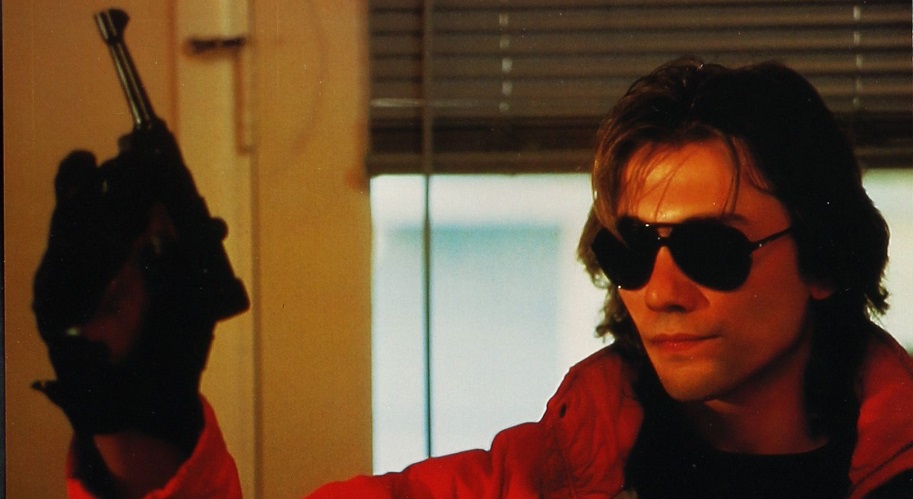
The story picks up in 1986, two days after Christmas in Stockton, California. As the flick opens, a conspicuous young creep in a flowing mullet and red parka waltzes down a suburban street, knocks on a seemingly random door, forces his way past an elderly lady before systematically shooting an entire family, all in the head with a .22 pistol, before carving the matriarch open in order to collect a few of her organs. Nasty business! We then cut to the home-life of D.A. Tony Fraser (Michael Biehn), who we soon learn lost his own young daughter to pneumonia just six months prior. Still reeling from such a tragedy, Fraser can’t quite stomach the types of brutally graphic violence inflicted by the serial killer – Charles Edmond Reece (Alex McArthur) – including the deaths of little children not much older than Fraser’s own daughter. Here’s the kicker though. Reece believes he must kill in order to stay alive. He believes, through his own warped sense of logic, that his organs are failing and that if he doesn’t ingest fresh human blood let from other healthier strangers, he will die in short order.
The movie then plays out as a very complicated, well-argued, highly entertaining legal-procedural, a courtroom drama, as well as a harrowing psycho-slasher. The crux of the drama is this: is Charles Reece deemed medically insane, and if he is, should he be held culpable for the heinous murders he’s committed? D.A. Fraser argues that he is NOT insane, that he was quite cognizant of his odious actions while he was exacting them, and that he should be put to death as a result. Reece’s lawyers argue the opposite, that we was indeed out of his right mind when killing these people, and ought to be treated for paranoid schizophrenia rather than going to jail. While we witness the two legal sides argue their case, we as audience members are left to parse clues from Reece’s own statements to in effect side one way or the other. Making things even more interesting is how Reece admits he’d rather die than spend the rest of his life in jail. So would Fraser’s intended verdict actually do Reece a persona favor, even for the greater good of society?!
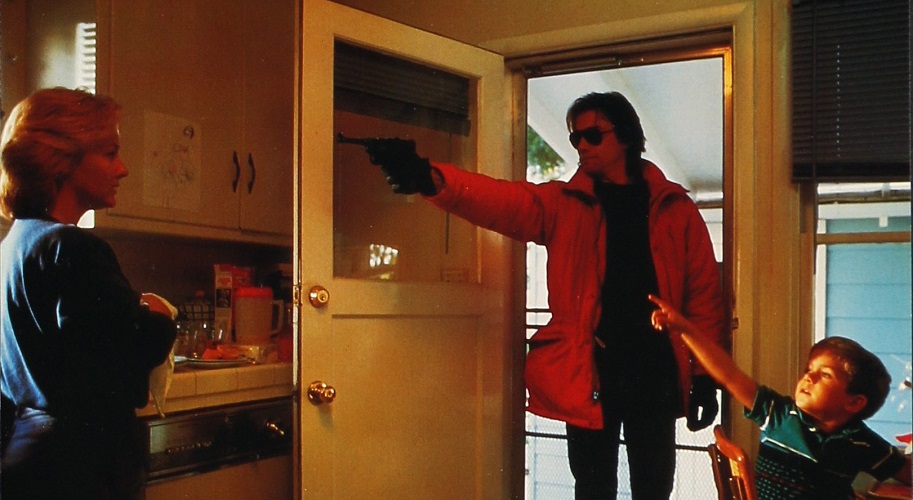
Stylistically, one of the strengths of the film is how the material is handled soberly, straight-forward and with little frills. Penning the screenplay himself, Friedkin lets the story do the work. There’s no hand-held kinetic-energy of THE FRENCH CONNECTION or the cool camera trickery seen in THE EXORCIST. No, this is almost like a Lumet film, where the style of direction is all but invisible. This allows for the audience to simply let the legal-battle play out on the strength of its arguments. I loved that. I also love how Friedkin cast a relative unknown in McArthur to play Reece. This ensures an unbiased or preconceived notion from the audience. Had a likeable star been cast, we may have sided with him regardless of the facts of the case. But by giving us such a blank slate, we can judge the man not on his off-screen persona, but on the horrific crimes he’s calculated so coldly.
This matter of fact comportment extends to the violence itself, which is not at all sensationalistic, but rather stark and unglamorous. More alarming is the direct endangerment of small children, unflinchingly so, for which Reece seemingly has no remorse whatsoever. Whether he’s plugging small rounds into the domes of his victims, slashing their throats, mutilating their corpses or harvesting organs, the violence is never played for cheap thrills. They’re simply evidentiary, which goes a long way in keeping the legal aspect of the story as impartial as possible. Even in the obdurate way Reece kills his victims, emotionlessly, keeps his motives as mysterious as the violence is rooted in reality. And while it’s a decent performance given by McArthur, let it be known that on the other side of the ledger is Michael Biehn giving one of his best and more well rounded turns of his career. He’s not asked to be sexy or tough or to flaunt his typical action persona, on the contrary, he’s given a more internalized, deeply conflicted role of a man whose own life tragedy tints his moral outlook. Like the entire film itself, this is a Biehn we’re not used to seeing!
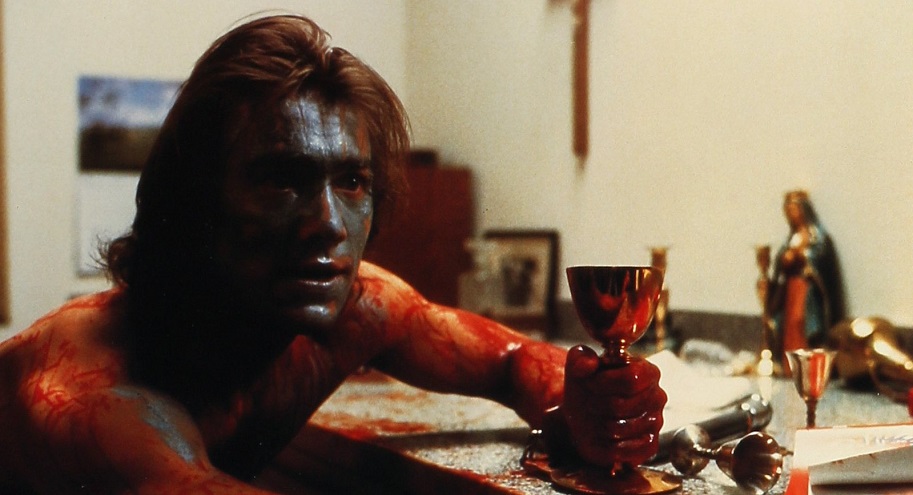
Under it all, RAMPAGE has an affective heartfelt humanity to its drama. Not just in its depiction of small children – their innocence, lost innocence – but in the parental victims as well. There’s a scene when a father has to explain to his son what just happened to his mother – gorily vitiated for her organs – that is downright touching. The disturbing effect these kinds of crimes have on people in real life shines through with much of the dialogue Friedkin equips his characters with. The final scene, featuring the same embattled father and son, is just as emotionally moving. They say facts are stubborn. Yet as stubborn as the facts are presented on both sides of Reece’s legal case, Friedkin still leaves room to give an emotional weight to the story that resonates beyond the courtroom. All of these facets added up to not only a terrific little legal thriller, but most certainly a F*cking Black Sheep of a forgotten Freidkin film. Go see this instead of that dumb-ass Rock RAMPAGE!
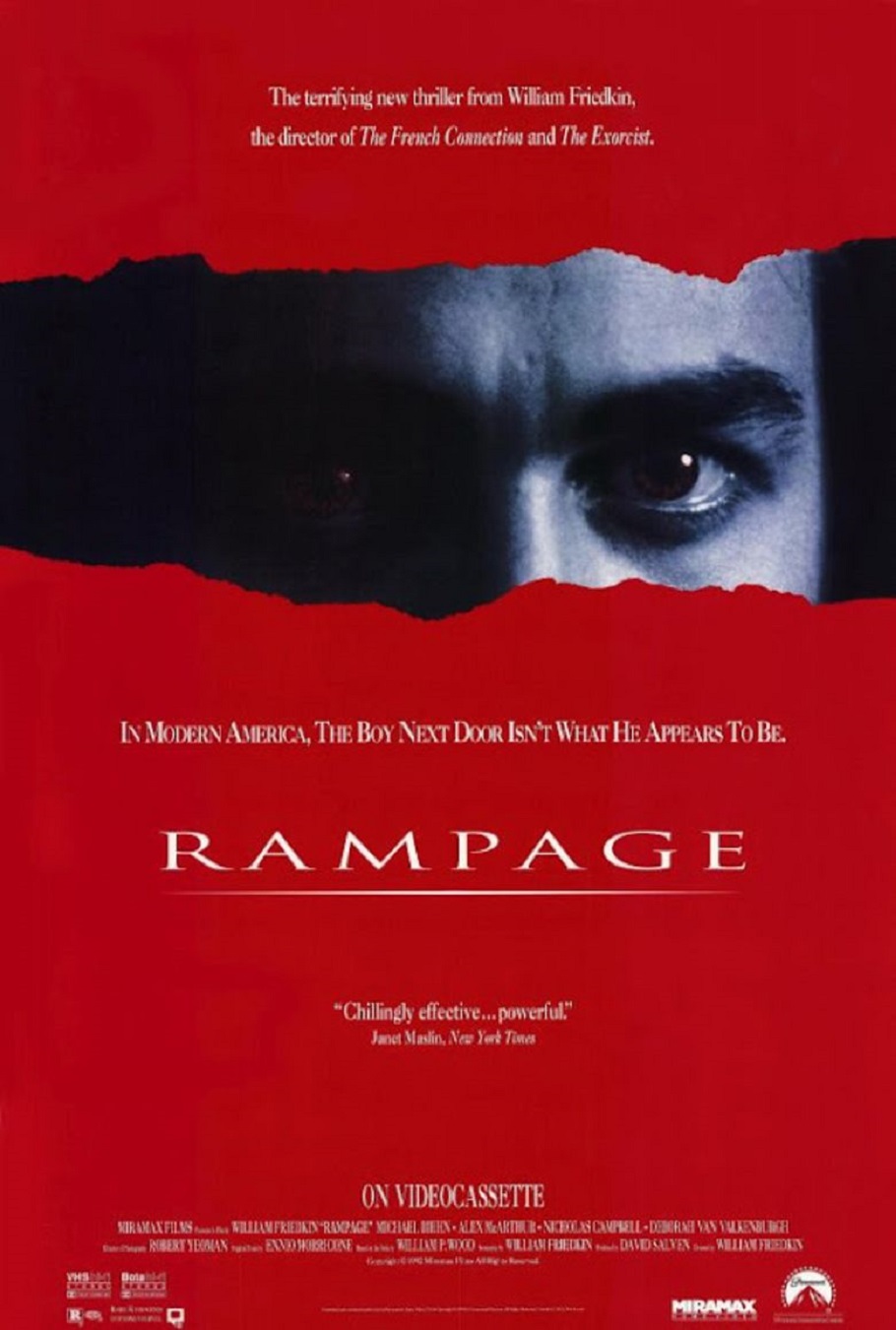







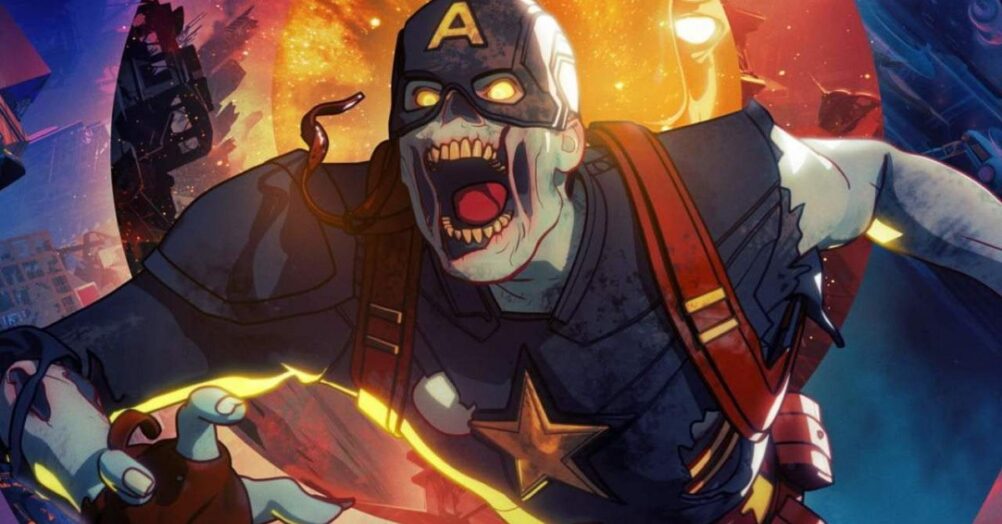
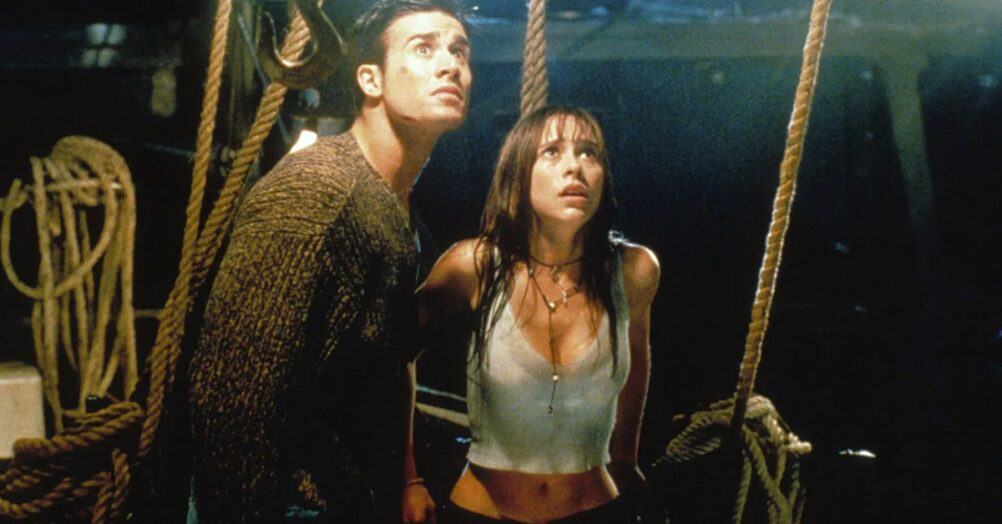



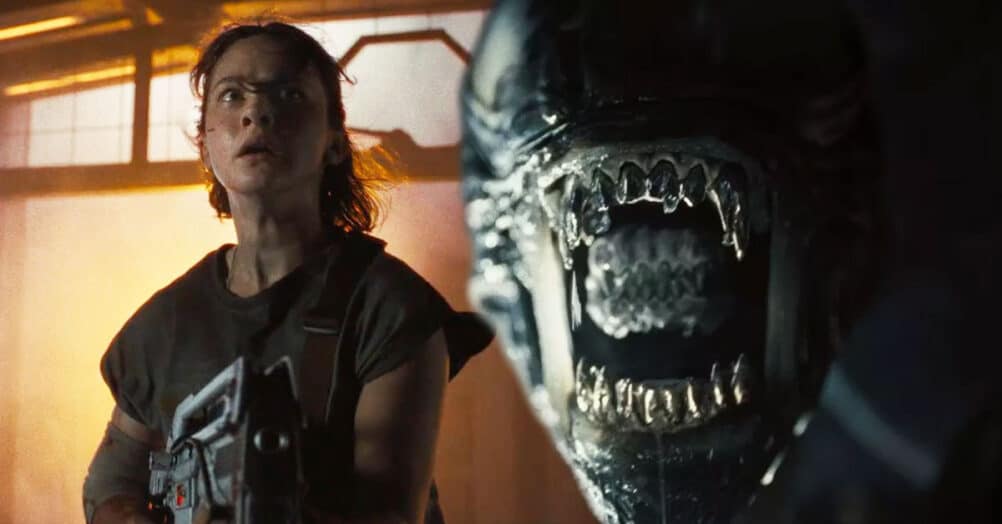
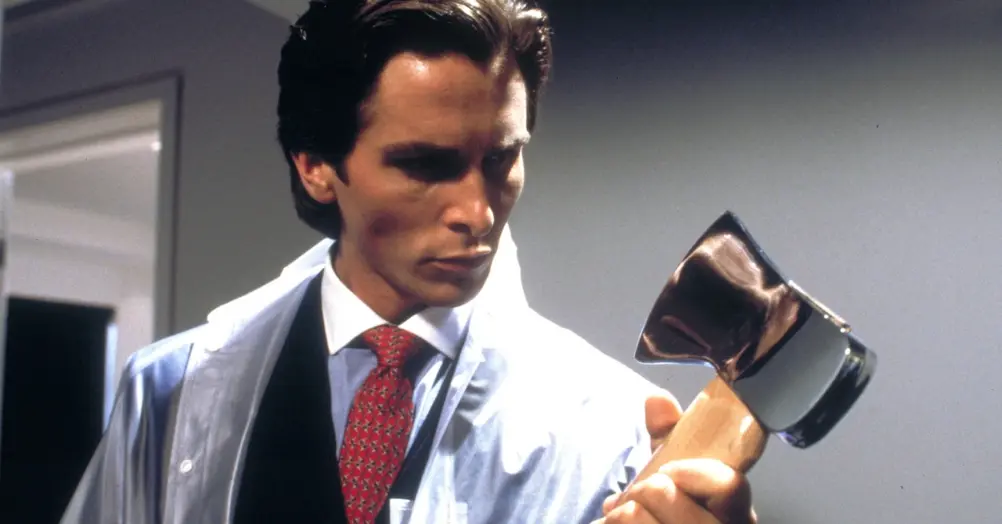


Follow the JOBLO MOVIE NETWORK
Follow us on YOUTUBE
Follow ARROW IN THE HEAD
Follow AITH on YOUTUBE